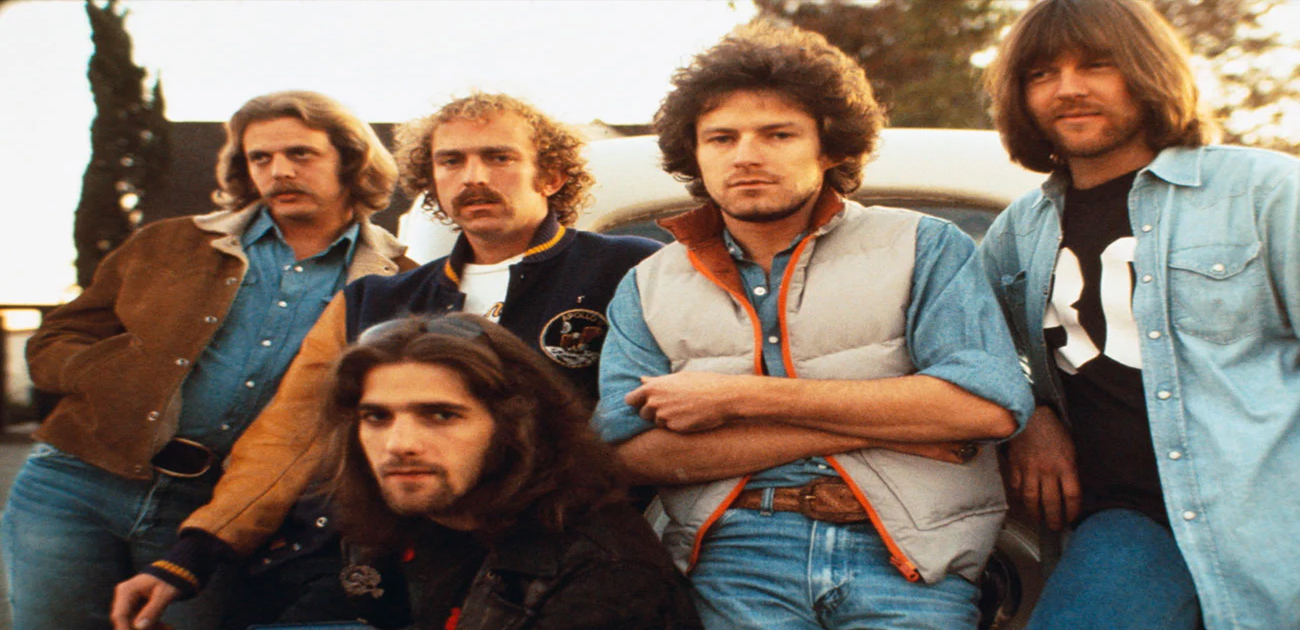The Eagles, a legendary American rock band, etched their name into music history with a string of iconic hits. Among their most enduring tracks is “Lyin’ Eyes,” a song that seamlessly blends country and rock, captivating audiences with its haunting melody, introspective lyrics, and stellar musicianship.
Released in 1975 as the second single from their album One of These Nights, “Lyin’ Eyes” quickly soared to critical acclaim and commercial success, reaching number two on the Billboard Hot 100 chart and number eight on the Billboard Country chart – a feat rarely achieved by rock bands at the time. This dual success solidified the Eagles’ ability to transcend genre boundaries, captivating both rock and country audiences with their profound storytelling.

The song’s opening bars set the stage with a melancholic acoustic guitar intro, immediately establishing the introspective mood. Glenn Frey’s impassioned vocals, complemented by the skillful harmonies of Don Henley and Randy Meisner, paint a vivid picture of a narrator wrestling with the complexities of a deceitful relationship.
The lyrics, rich with imagery and metaphor, delve into the emotional turmoil caused by a significant other’s dishonesty. Lines like “She gives her heart to everyone she meets” and “She’d steal your soul if it meant a dime” showcase the narrator’s disillusionment and heartbreak. However, the song avoids resorting to melodrama, instead offering a nuanced portrayal of the emotional complexities of deception in a relationship.
Musically, “Lyin’ Eyes” showcases the Eagles’ masterful blend of rock and country influences. The song’s structure, featuring a laid-back rhythm section and soaring guitar solos, exemplifies the band’s signature sound. The delicate interplay between the acoustic and electric guitars adds depth and texture, while the subtle piano flourishes provide a touch of elegance.
“Lyin’ Eyes” holds a special place in the Eagles’ legacy, earning them a Grammy Award for Best Pop Vocal Performance by a Duo, Group or Chorus. It continues to resonate with listeners across generations, its timeless theme of betrayal and the lingering impact of deceit remaining relevant even today.









